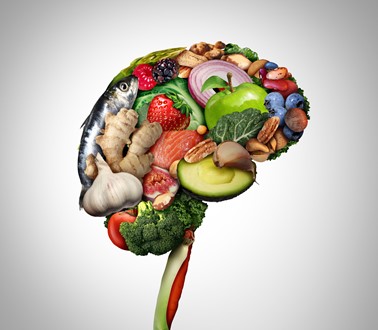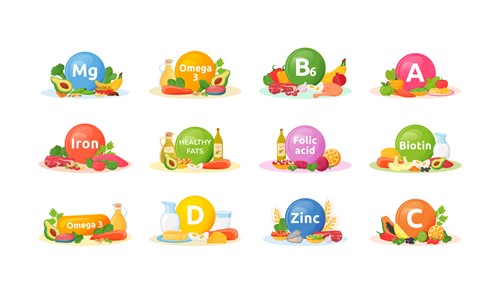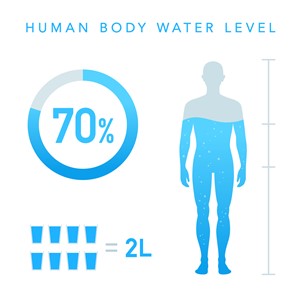Fatigue is one of the most commonly reported effects of a brain injury. Unlike 'normal' fatigue, which is time-limited and alleviated by rest, the intense feeling of fatigue after brain injury may be present most of the time and can have a significant impact on quality of life1. Up to 70% of people who have experienced a brain injury report to experience mental fatigue2.
What is fatigue?

Fatigue is a feeling of exhaustion, tiredness, weariness and lack of energy. It can be classified into 3 groups2:
1. Physical fatigue
2. Psychological fatigue
3. Mental fatigue.
What causes fatigue after brain injury?
The degree of fatigue experienced is not necessarily correlated with the severity of the brain injury. It can affect an individual with a mild brain injury just as much as it can affect someone with a severe brain injury.
Within the brain there is a system which regulated being asleep and awake called the Ascending Reticular Activating System (ARAS) and is it thought that the functioning of this system may play a role in fatigue after brain injury1.
In addition to this, there are numerous factors that can make people vulnerable to fatigue and how they respond to it, including the following:
- Anxiety and depression
- Medication side effects
- Pain
- Physical difficulties
- Poor diet
The role of diet and nutrition in fatigue after brain injury

It is important to ensure a healthy, balanced diet following brain injury as this helps us to maintain our energy levels. Let’s have a look at the key part of a healthy, balanced diet:
Starchy carbohydrates - these are an essential component of a healthy, balanced diet as they are the main energy source for our bodies. It is important that we choose wholegrain carbohydrate food sources as these are broken down more slowly by the body. This helps to the release the energy more slowly and help to keep our energy levels steady throughout the day. Foods which provide starchy carbohydrates include bread, cereals, pasta and rice.
Fruits & vegetables - getting your 5 a day is important to ensure that you get a good mix of vitamins and minerals. It is important to know what counts as one of your 5 a day. This help will ensure to guide you to ensure you eating the 80g portion that counts towards one of your 5 a day
Health Fasts – foods which are a source of Omega-3 fatty acids are important for brain injury recovery. Omega-3 fatty acids are typically found in oily fish, such as salmon, mackerel and sardines.
- 2 plums/kiwi/satsumas
- 1 banana/apple/orange
- 2 broccoli spears
- 4 heaped tablespoons of cooked kale, spinach, spring greens or green beans
- 3 heaped tablespoons of cooked vegetables, such as carrots, peas or sweetcorn
Lean protein – choosing lean, low fat protein sources such as chicken and fish help to ensure your body gets the nutrients it needs to keep the muscles strength and to support recovery. Non-meat protein food sources include beans, pulses and mycoprotein (such as Quorn)
Calcium rich food sources – Calcium is an important nutrient for our body as it supports the health of our teeth and bones. Rich food sources of calcium include dairy foods (such as milk, cheese and yoghurt), green leafy vegetables and fish such as mackerel and pilchards.
What about vitamins and minerals?

It is important that you are not deficient in any of the following nutrients as they are all known to cause fatigue if your body does not have the correct level:
- Iron
- B12
- Folate
If you are eating a well-balanced healthy diet, you should be getting adequate amounts of these nutrients so should not need to take a supplement. However, if you blood results show low levels, your GP or health care professional may advise a supplement.
Vitamin D
It is recommended that all adults should consider taking a 10 microgram Vitamin D supplement during autumn and winter. If you don’t get adequate amounts of sunlight, for example, if you are housebound, you should consider taking a 10 microgram Vitamin D supplement all year round.
Don’t forget to make sure you drink enough fluid

Ensuring you are well hydrated can also help you to manage your fatigue. Make sure you choose fluids that will hydrate the body such as water, fruit juice, tea and coffee. Limit your intake of alcohol as this make your fatigue worse. Tea and coffee are sources of caffeine so be mindful of making sure you are relying on these drinks to give you an energy boost.
How to ensure you eat the right foods when you are experiencing fatigue?
It is important to eat regular meals based on healthy, balanced food choices to ensure a steady supply of energy to the body. Try to avoid skipping meals as this can lead to long periods between food and can cause your blood sugar levels and energy levels to drop, which can worsen your fatigue.
If you would like any advice, our dietitian can help to assess your diet and provide practical tips and advice to manage your nutrition following traumatic brain injury.

